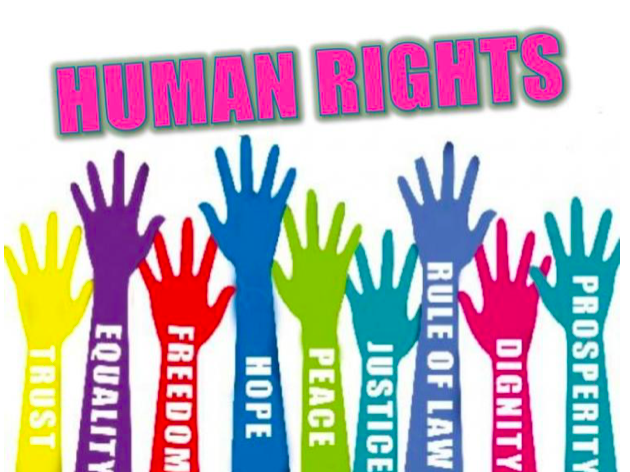Uganda: 2021 Annual Report on Human Rights and Democracy in the World

Uganda
1. Overview of the human rights and democracy situation: General elections took place in January 2021, tarnished by electoral violence and contestation of the process and the results. Disappearances and arbitrary arrests affected hundreds of opposition supporters, some lasting for months and illustrating the erosion of the rule of law in the country. There were further constraints for civil society organisations (CSOs) and human rights defenders (HRDs), including the suspension for 54 NGOs (because of a legal ‘non-compliance’) in August, unsubstantiated money laundering charges against a prominent HRD, violence against journalists, and the arrest of NGO employees supporting communities negatively impacted by oil developments. Importantly, the Democratic Governance Facility (DGF), a pooled fund active since 2011 and currently supported by the EU, Austria, Denmark, Ireland, Netherlands, Sweden and Norway was suspended in February 2021.
Accountability for serious human rights violations was elusive in 2021. Despite sustained advocacy by local civil society groups, the deaths of at least 54 people during political protests in November 2020 remained unaccounted for. Access to justice remained severely constrained, characterised by lengthy pre-trial detention and limited coverage of legal aid services. The process for establishment of a national legal aid policy and law, as well as a witness protection act, has stalled.
Human rights concerns linked to the State’s response to COVID-19 persisted in 2021. Access to education was affected by a blanket school closure for almost two full years (the longest period in the world). Lockdown periods exacerbated sexual and gender-based violence, and led to an increase of teenage pregnancies. The number of children engaged in child labour doubled to over four million in 2021. LGBTI persons in Uganda continued to face discrimination and attacks during 2021; 44 people were arrested in May. The abuse of land 160 rights and environmental rights caused concern, with the arrest of several environmental rights campaigners and staff of environmental NGOs.
2. EU action - key focus areas: The EU organised or supported nine international days or events related to democracy and human rights in Uganda, including the 2021 EU Human Rights Defenders Award hosted by Germany. In 2021, the EU responded to alarming needs to protect and empower Human Rights Defenders in Uganda and to build a more inclusive society where NGOs can also play an active role, and expressed its concern about potential misuse of antilaundering/countering financing terrorism legislation to constrain civil society.
For the 2021 electoral process, the EU did not deploy an electoral observation mission nor an electoral expert mission to Uganda. The EU delegation coordinated a local Diplomatic Watch exercise for the general elections in January.
Regarding digital rights and internet governance, the EU raised concern about the internet shutdown during the electoral process and some blockages (Facebook), and supported some projects on digital security and inclusion, as well as on innovation. Regarding business and human rights, the EU engaged on community rights in difficult cases in Kirandondo district, Bugoma Forest, and Albertine region.
3. EU bilateral political engagement: The EU did not hold any session of political dialogue at presidential level in 2021, but engagement with Ugandan authorities continued at all levels; contacts with the new governmental appointees took place since the summer and policy dialogue continued. The EU engaged with senior government officials and offices to raise concerns about prosecution and the shrinking civic and political space, including with the renewed Uganda Human Rights Commission.
In its dialogue with the authorities, the EU and its Member States repeatedly raised the issues of civic space and human rights and publicly condemned violations of human rights. Human rights related demarches were presented to the Ministry of Foreign Affairs.
4. EU financial engagement: The EU agreed to continue financial engagement with Uganda for the next programming cycle 2021-2027, including the priority of Promoting Democratic Governance and Social Inclusion in its Multiannual Indicative Programme.
In September, the EU delegation and nine Member States ensured a continued strong focus on support to civil society, through the agreement of a new EU CSO roadmap for 2021 – 2027. The Civil Society in Uganda Support Programme (CUSP) continued to support the strengthening of CSOs’ capacities and their engagement in development processes and with the government.
Grants from the European Instrument for Democracy and Human Rights (EIDHR) and the Civil Society Organisations/Local Actors (CSO-LA) continued to complement the geographical envelope. Grants covered the issues of youth and livelihoods, natural resources governance, gender-based violence and violence against children, women’s economic empowerment, human rights and freedom of expression. Under the EIDHR, two new contracts were signed in 2021 to support CSOs in combatting violence against women and advancing the rights of groups in vulnerable situations in the COVID-19 context.
5. Multilateral context: With the support of the Justice and Accountability Reform programme, the backlog of human rights reports to United Nations treaty bodies was reduced.
The EU-UN Spotlight Initiative to eliminate violence against women and girls in Uganda progressed well in good collaboration with the UN and the government. Spotlight supported mainstreaming of gender-based violence prevention in sectoral and local governments’ plans, contributed to social norms change and promoted sexual and reproductive health and rights. In a context of sharp increase of gender-based violence due to a prolonged COVID-19 lockdown, the programme also provided support to 16 shelters for victims of gender-based violence.
In 2021, the EU worked with UNESCO for an event on the International Day to End Impunity for Crimes against Journalists.





